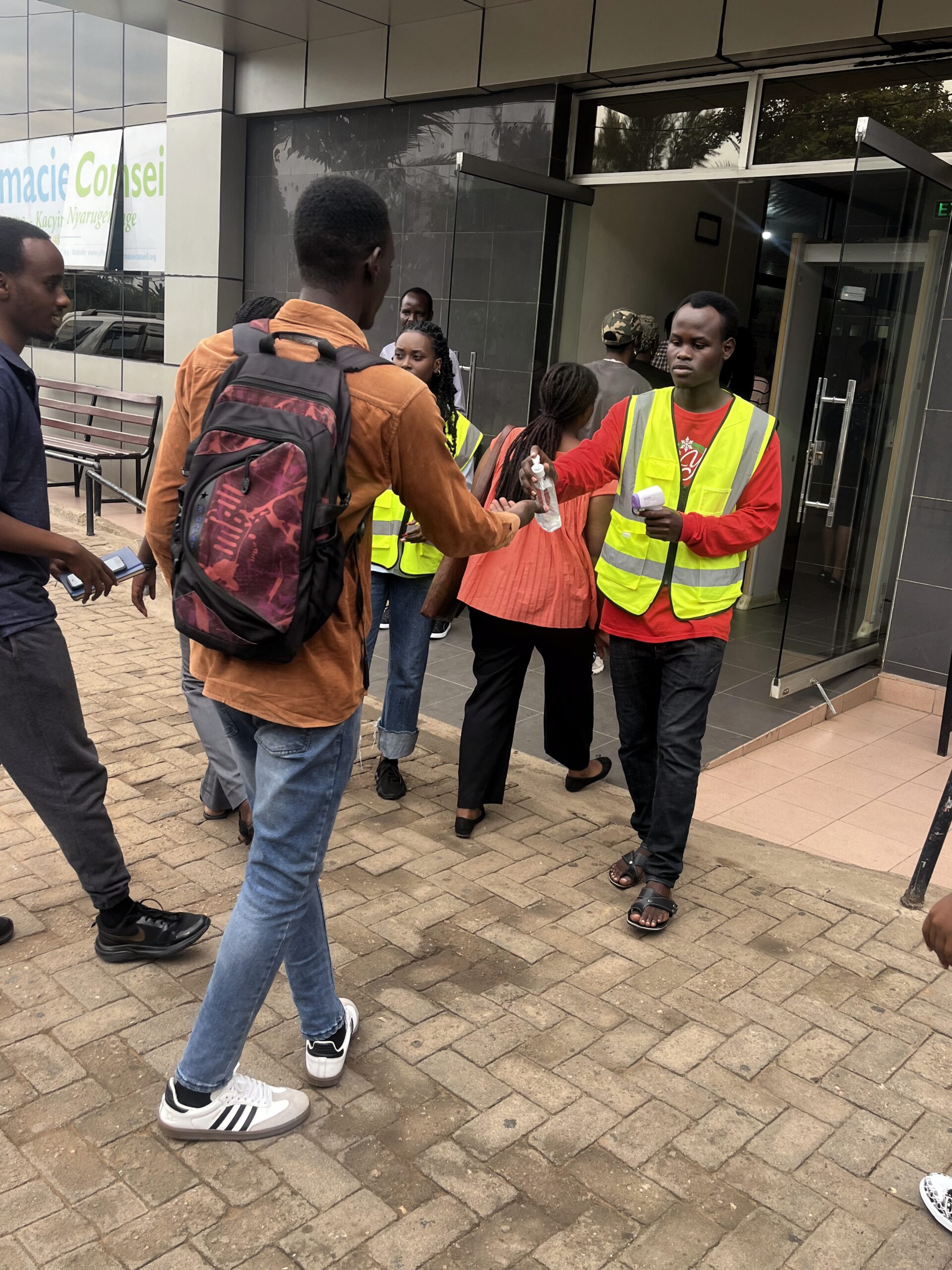When the Marburg virus outbreak hit Rwanda, it was a scary time for everyone. But here at the university, we worked together to help stop the spread and protect our community at Uok. In late September 2024, Rwanda confirmed its first cases of Marburg virus disease, a highly infectious and deadly pathogen similar to Ebola with 66 confirmed cases and 15 deaths. Healthcare workers were disproportionately affected, making up nearly 80% of those infected. ”
The outbreak, declared by the Ministry of Health on September 27, posed an urgent health threat, especially with no approved vaccines or treatments available. At the University of Kigali, response efforts were led by the University Clinic, a recently established medical facility on campus that opened in May 2024. The clinic was instrumental in ensuring the safety of students, faculty, and staff through well-coordinated health measures and awareness programs.
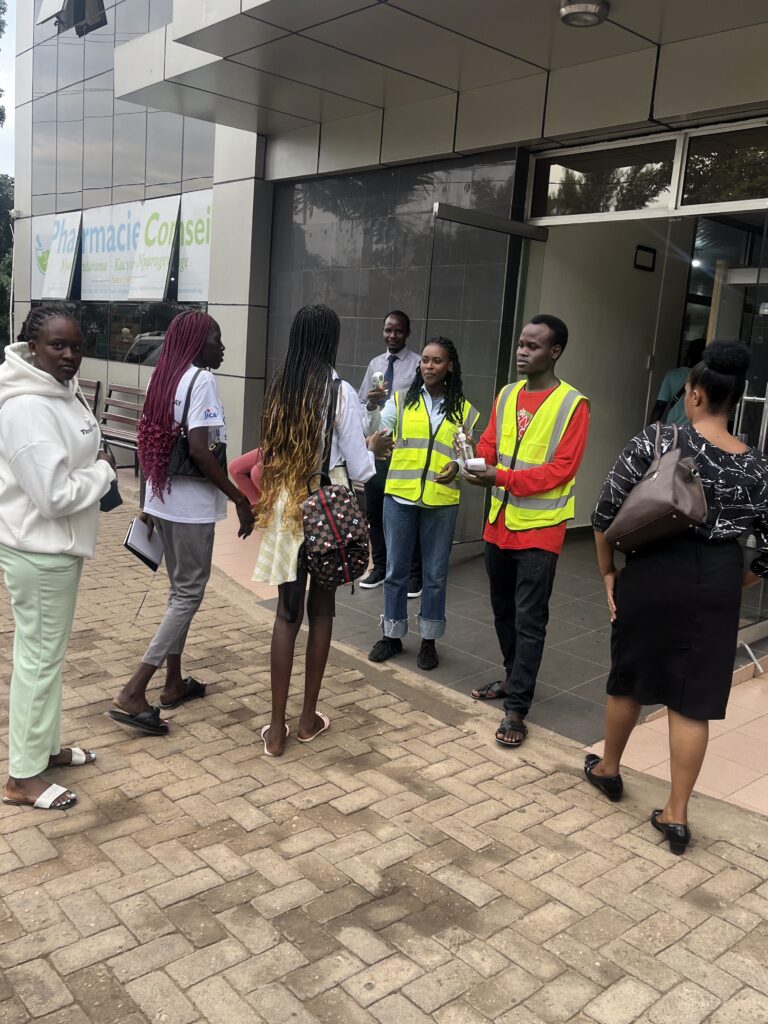
The University of Kigali Clinic, designed to offer a range of health services to the campus community, quickly assumed responsibility for leading the fight against Marburg virus on campus. Its role included providing primary care, routine health assessments, emergency response, and preventive health education. In response to the outbreak, the clinic immediately set up stringent protocols to protect the university community. These included mandatory temperature checks at campus entry points, setting up sanitation stations in high-traffic areas, and educating students and staff on symptoms and preventive actions, and setting up sanitation stations to ensure frequent hand hygiene.
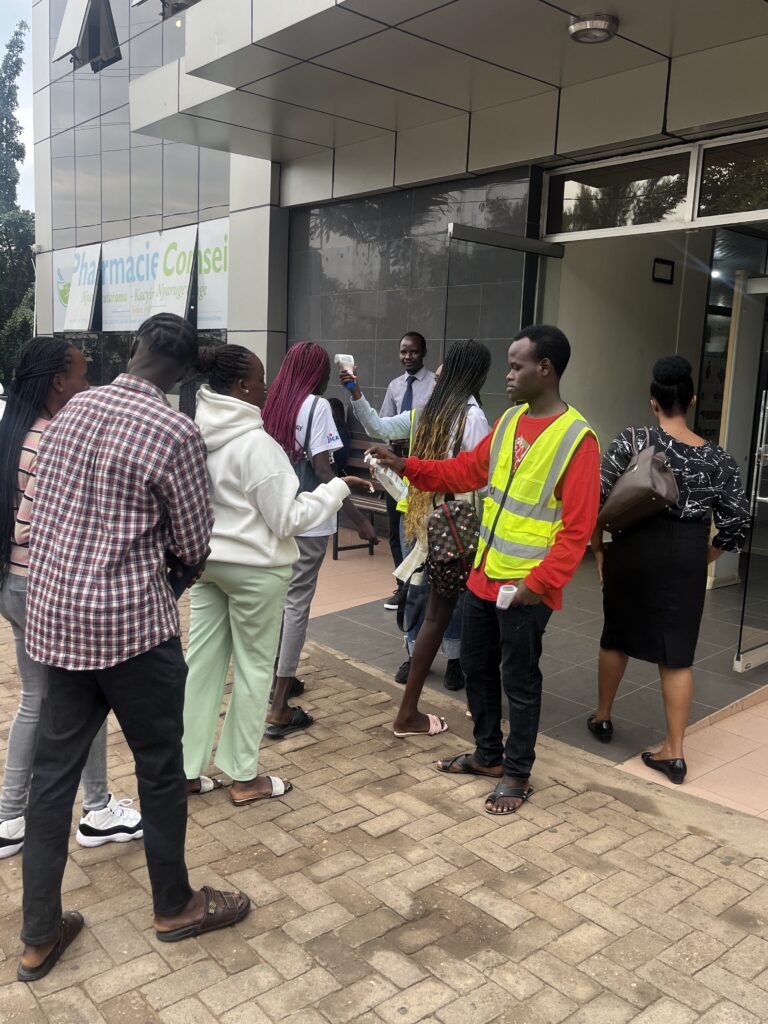
Staff at the clinic also encouraged the university community to adhere to preventive steps like wearing masks in shared spaces and monitoring for symptoms. The clinic served as the primary contact point for health-related questions and concerns, providing guidance to help students and staff identify signs of Marburg infection and know when to seek medical attention. The clinic’s proactive approach was critical in creating a safe environment amid rising concerns. Throughout October, The University of Kigali clinic’s health team coordinated with public health officials to implement up-to-date protocols and maintain a high level of preparedness. Contact tracing measures were established, allowing for quick action if anyone on campus exhibited symptoms or had been exposed to a confirmed case, which was key to preventing the spread.
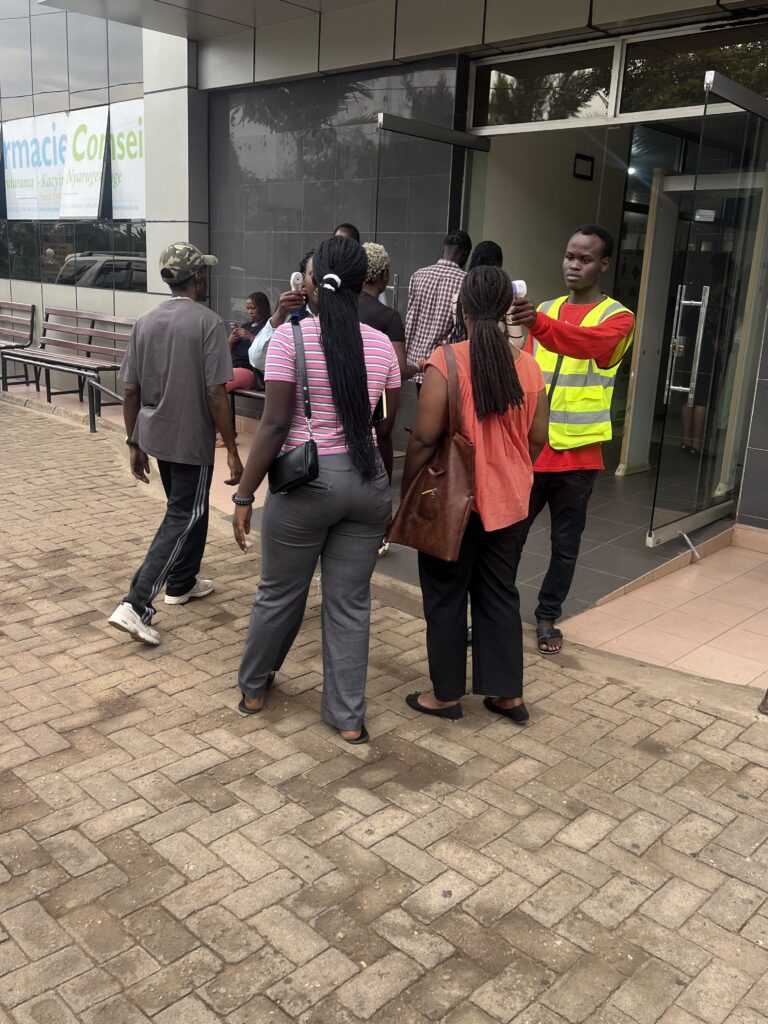
Healthcare professionals from the University of Kigali clinic organized workshops explaining how to emphasize the importance of hand hygiene and social distancing. Additionally, the clinic developed a protocol for rapidly isolating anyone showing symptoms, ensuring swift action to contain potential spread. Health workers from the clinic conducted regular assessments and liaised with public health officials to stay updated on best practices. With contact tracing protocols in place, the clinic was prepared to identify, isolate, and refer any individuals who had been exposed to the virus.
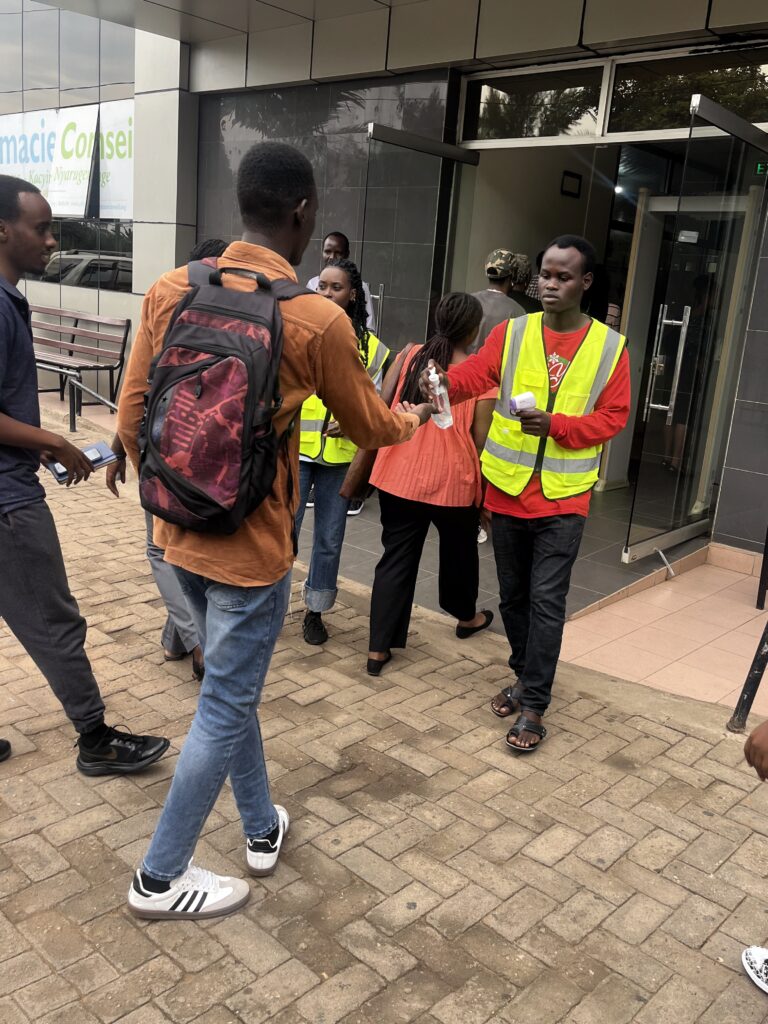
Thanks to these combined efforts, the University of Kigali achieved an exceptional outcome: zero cases of Marburg virus on campus. The University Clinic’s leadership demonstrated how vital rapid response, clear communication, and community involvement are in protecting public health. Through careful planning and strong collaboration with health authorities, the University of Kigali set a model for effective epidemic preparedness, showing how campus clinics can be at the forefront of crisis response and health management in educational settings.
Thank you to the health workers at the university, we didn’t see any Marburg cases spread within our university community. It’s been a tough time, but we made it through together. According to The World Organization Rwanda is now officially free of the marburg Virus following a significant milestone with no new cases reported since october 30 and we’re proud to have been a part of that effort.

